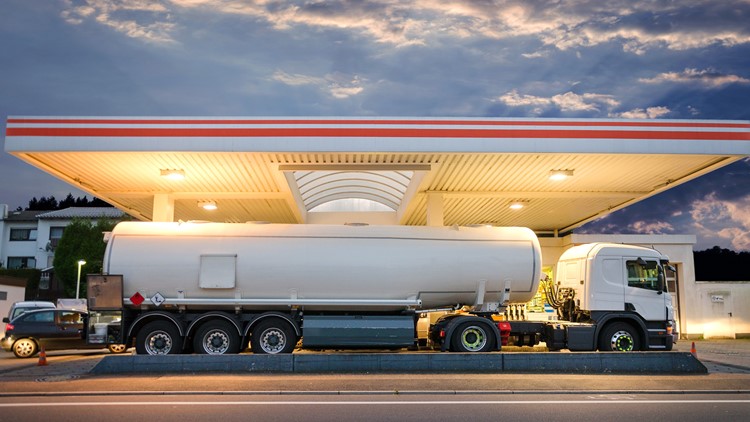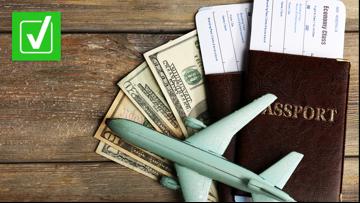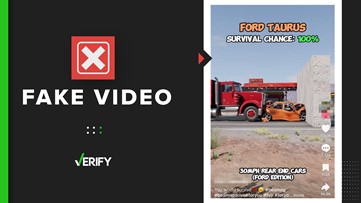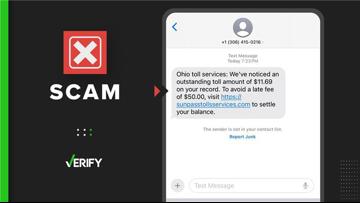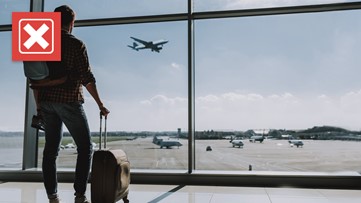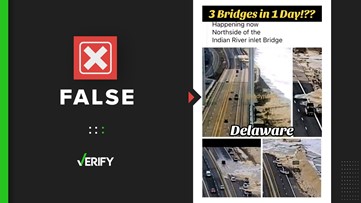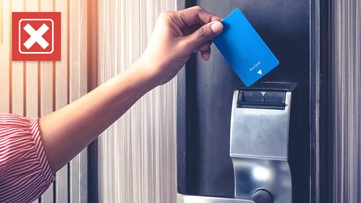When you’re looking to fill up on gas, there are several things you might consider when picking out a station such as price, brand and location.
Sometimes, you might see a tanker truck refilling the gas supply at your station of choice. If you’ve heard the common claim that refueling tankers kick up sediment in the gas supply which in turn gets into your car’s own tank, you might decide to try a different station instead.
People who say you should avoid stations with tanker trucks present argue that sediment sitting at the bottom of these underground tanks gets kicked up when new gas is pumped in. Until the sediment settles, which may take a few hours, anyone using the pumps could fill their car’s gas tank with dirt, which over time could cause car problems.
VERIFY reader Jay asked us if this is something you should really worry about.
THE QUESTION
Should you avoid filling up your car at a gas station while it’s being refueled by a tanker?
THE SOURCES
- AAA
- PetroClear, a manufacturer of fuel dispenser filters
- Veeder-Root, a fuel management technology company
- Greg Bannon, director of automotive engineering research at AAA
- Robert Ingham, sales director of PetroClear
- Jeff Lenard, V.P. of strategic industry initiatives for NACS, a global trade association for convenience stores and fuel retailers
THE ANSWER
Sediment does get stirred up while a tanker truck is refueling a gas station’s tank and can get mixed in your gas if you refuel during that time. However, gas pump filters have improved, so it’s less of an issue today than it was decades ago.
WHAT WE FOUND
Gas stations refill their fuel through tanker truck delivery, the U.S. Energy Information Administration says. The trucks pump gas directly into underground tanks, which supplies the gas pumps that you use to fill your car, AAA says.
The gas supply in that underground tank can be contaminated by particulates, such as sediment, or by water.
If enough sediment makes it into your car, it can clog your car’s fuel filters or even damage its fuel system, AAAA Auto and Storage Park says. When enough water gets into the fuel supply tank, “phase separation” occurs, which is when the water mixes with the ethanol in the gas, Veeder-Root, a fuel management technology company, says. Phase separation is corrosive, and can therefore cause damage to a gas station’s equipment, damage vehicle engines and potentially cause vehicles to stall.
To prevent these contaminants from getting into your car at all times, not just when a truck is refueling the station’s tank, gas stations today install filters within their gas pumps to clean the gas before it reaches the nozzle. Multiple videos from UST Training, which trains operators of fuel storage tanks like the ones found at gas stations, show the location of the filter within the pump.
Robert Ingham, sales director of PetroClear, a manufacturer of fuel dispenser filters, told VERIFY that any debris or water contamination at the bottom of a gas supply tank does get stirred up when fuel is pumped into the tank. That allows the debris and other contaminants to enter the intake pipe feeding the gas pumps.
However, gas pump filters will capture most of the debris as the pump pulls the gas from the tank, Ingham said. He added that some filters detect water contamination and put the gas pump into a slow flow, which alerts the station operators that there’s an issue in their fuel tank. These filters will remove the water by constricting once the water is detected, Veeder-Root says.
Greg Bannon, director of automotive engineering research at AAA, told VERIFY in an email that “filters do not remove all of the sediment.” That’s why Bannon recommends caution if you see a tanker truck refueling a gas station’s tank.
“It is still a good practice to avoid filling up at stations while the tank is being filled as it increases the chances of getting sediment and water in your vehicle, however the filtration systems at the gas stations and in your vehicle have improved dramatically from decades ago so it is less of an issue than in the past,” Bannon said.
But if you have to get gas when a tanker truck is at the station, know that the risk of contamination is low. Filter requirements minimize the likelihood that particulates end up getting into your car’s gas tank, so sediment kicked up within the storage tank “shouldn’t be a concern to drivers,” Jeff Lenard, V.P. of strategic industry initiatives for NACS, a global trade association for convenience stores and fuel retailers, said.
Some states require gas stations to use higher quality filters capable of catching fine particles, according to PetroClear's website. However, some states don’t have any legal standards requiring pump filters. PetroClear lists each state’s filter regulations here.
Many gas pump manufacturers also require gas stations to use filters and will void the pump’s warranty if the gas station doesn’t comply, PetroClear says.
But gas stations have incentives to use pump filters even without the legal and manufacturer requirements. In fact, “most retailers use smaller-grain filters that are even more effective in preventing particulates from entering into the pump system,” Lenard said.
Higher quality filters usually filter out both fine particulates and water, Veeder-Root says. These filters can help prevent damage to a gas station’s equipment that’s expensive to repair, and can catch or make operators aware of contamination that can stall vehicles or otherwise damage cars — damage the gas station may be liable for the cost of repairing.

